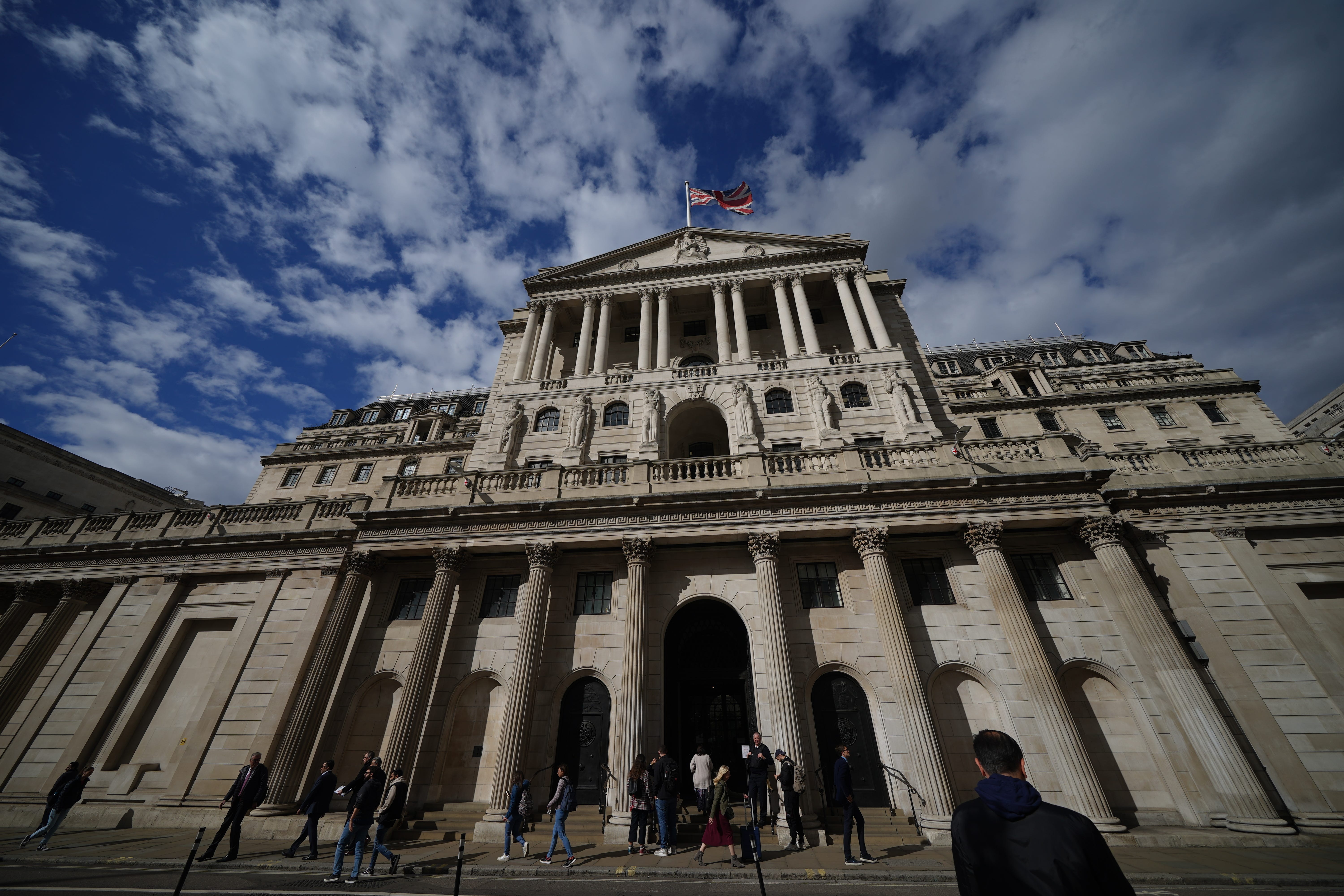Government bonds and pound rally amid pressure for mini-budget U-turn
The pound made gains on Thursday as the Bank of England’s bond-buying plan neared its deadline.

Your support helps us to tell the story
From reproductive rights to climate change to Big Tech, The Independent is on the ground when the story is developing. Whether it's investigating the financials of Elon Musk's pro-Trump PAC or producing our latest documentary, 'The A Word', which shines a light on the American women fighting for reproductive rights, we know how important it is to parse out the facts from the messaging.
At such a critical moment in US history, we need reporters on the ground. Your donation allows us to keep sending journalists to speak to both sides of the story.
The Independent is trusted by Americans across the entire political spectrum. And unlike many other quality news outlets, we choose not to lock Americans out of our reporting and analysis with paywalls. We believe quality journalism should be available to everyone, paid for by those who can afford it.
Your support makes all the difference.UK government bonds and the pound rallied amid speculation that Liz Truss’s Government could be forced to U-turn on its unfunded tax cut plans.
Pressure on gilts – UK government bonds – also eased as the Bank of England sought to steady market sentiment by increasing its bond-buying activity ahead of a Friday deadline.
According to reports, No 10 and the Treasury are holding talks over whether to abandon more of the Government’s £43 billion tax-cutting plan. This could include reversing the decision to cancel planned rises in income tax.
Ministers have already U-turned on the plan to slash taxes for the highest earners.
On Thursday Foreign Secretary James Cleverly declined to rule out further U-turns, but insisted the Government will “absolutely stick” to its tax-cutting principles.
The Prime Minister’s official spokesman made clear there will be no further changes.
“The position has not changed,” the spokesman said.
Markets appeared to think otherwise, taking their cues from the reports rather than the official statements.
The yield of UK 30-year gilts – which has been under heavy pressure since the mini-budget was announced – dropped by a little under 0.3 percentage points to 4.5% as the market calmed slightly.
The Bank of England had been forced to step in two weeks ago to calm the gilt markets by promising to buy up to £65 billion in gilts from those who want to sell them.
The chaos had been sparked by the Chancellor’s tax-cutting package and worries over how the Government would fund it, experts have said.
Initially, the Bank’s intervention seemed to push down yields on these gilts, which rise as prices fall.
But on Wednesday yields had surged as high as 5.1%, the same level they reached before the Bank’s initial intervention.
As part of the programme, the Bank bought around £4.35 billion of bonds on Wednesday and £4.7 billion on Thursday in an increased effort to help soothe the markets.
It brings the total bond buying to £17.8 billion so far. The intervention ends on Friday.
Investors had previously been shaken by governor Andrew Bailey’s firm message on Tuesday that the central bank would not extend the plan beyond the end of this week.
The pound also increased by nearly 2.5 cents to over 1.13 against the US dollar.
Chancellor Kwasi Kwarteng, who has been in the US meeting the International Monetary Fund, is now under pressure to reinstate a planned increase in corporation tax from April.